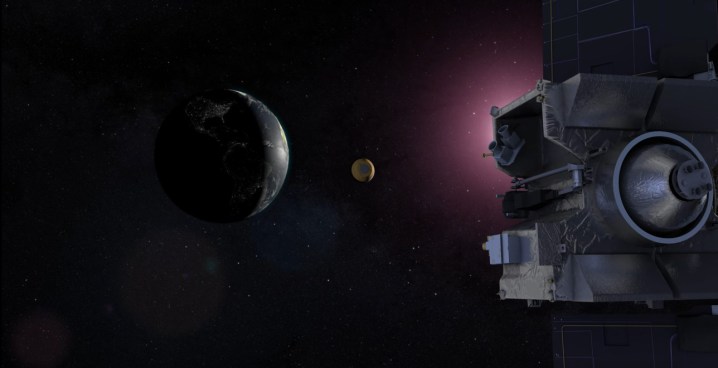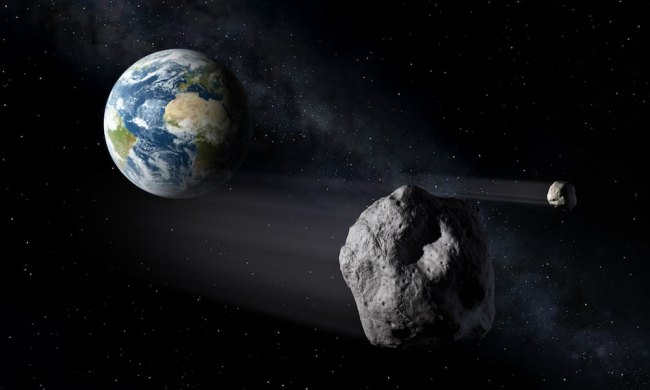NASA’s OSIRIS-REx spacecraft scooped up a sample from asteroid Bennu in October 2020, and in May 2021 the spacecraft headed back to Earth to drop that sample off. This week. the spacecraft performed a trajectory correction maneuver to keep it headed toward Earth, where it is scheduled to arrive in September 2023.
NASA has also shared more details on how exactly the spacecraft will deliver the asteroid sample to Earth, as this isn’t a simple process. OSIRIS-REx isn’t designed to be able to handle the incredible heat, friction, and other forces that traveling through Earth’s atmosphere requires so it doesn’t have a way to land on the surface. Instead, it will shoot a capsule filled with the asteroid sample into the atmosphere and only this capsule will arrive at the surface.

This maneuever will be tricky too, as Mike Moreau, OSIRIS-REx deputy project manager at NASA’s Goddard Space Flight Center, explained in a statement.” If the capsule is angled too high, it will skip off the atmosphere,” Moreau said. “Angled too low, it will burn up in Earth’s atmosphere.”
This is part of the reason that the spacecraft needs to make these trajectory maneuvers, to ensure that it ends up in exactly the right place in September of next year to be able to jettison the capsule at the right angle.
“Over the next year, we will gradually adjust the OSIRIS-REx trajectory to target the spacecraft closer to Earth,” said Daniel Wibben, trajectory and maneuver design lead with KinetX Inc., which is the company responsible for navigating the spacecraft. “We have to cross Earth’s orbit at the time that Earth will be at that same location.”
The recent trajectory maneuver was the first performed by the spacecraft on the return leg of its journey, with further maneuvers scheduled for July of next year. Once the capsule has been released into the atmosphere, it will slow itself with a parachute as it descends. The capsule will hopefully land in an exact planned location at the Air Force’s Utah Test and Training Range in the Great Salt Lake Desert, from where it can be collected by the Air Force and the Army, then taken to facilities for scientific investigation.



